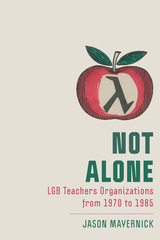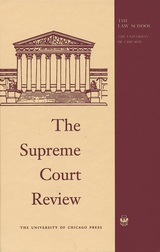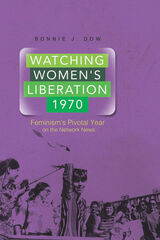
In 1959, at the age of twenty-two, Egyptian novelist Sonallah Ibrahim was imprisoned by Gamal Abdel Nasser’s regime. Over the following five years in prison in Egypt’s Western Desert, Ibrahim kept diaries that he smuggled out on cigarette papers.
In this novel, Ibrahim takes up Nasser as a fictional character tied tightly to real events, offering a window into his daily life in his final years. Ibrahim follows Nasser during the War of Attrition and the aftermath of the 1967 war with Israel and looks back on the events of the previous decades. He also chronicles Nasser at his most vulnerable, detailing a more private set of Nasser’s setbacks and defeats: the daily routines of a diabetic suffering from heart trouble in the months before his death. Political events as well as social and economic transformations are narrated through newspaper clippings and archival fragments, painting a portrait of the decline of a man who was once larger than life.


After providing background information on Cuba's prerevolutionary economy, Brunner explores the effects of Communist ideology and the U.S. embargo on the country's resources and trade, and analyzes the problems Cuba faced in shifting from trade with the U.S. to trade with the Soviet Union and Soviet bloc. He evaluates their implementation of the development plan, assessing the sugar industry within Cuba as well as how its accelerated development affected the rest of the domestic economy.

In her often lyrical memoir, Diehl reveals how, in the intimacy of the classroom, her students reached out to her, a young white northerner, and shared their fears, anxieties, and personal beliefs. Repeatedly surprised and challenged by her students, Diehl questions her long-standing middle-class assumptions and confronts her own prejudices. In doing so, she eloquently reflects on what the students taught her about the hurt of bigotry and the humiliation of poverty as well as dignity, courage, and resiliency.
Set in the waning days of the Jim Crow South, Dream Not of Other Worlds chronicles an important moment in American history. Diehl examines the history of black education in the South and narrates the dramatic struggle to integrate Virginia's public schools. Meeting with some of her former students and colleagues and visiting the school where she once taught, she considers what has--and has not--changed after more than thirty years of integrated schooling. This provocative book raises many issues that are of urgent concern today: the continuing social consequences of segregated schools, the role of public education in American society, and the challenges of educating minority and poor children.

This is the first quantitative analysis of the demographic and socioeconomic characteristics of a representative sample of Ukrainians in the United States. The studies are based on data from the 1970 U. S. population census (persons with Ukrainian mother tongue) with additional results from the 1980 census (persons of Ukrainian ancestry).
The volume consists of a selection of articles presented at a conference at Harvard University. Among the authors are such well-known demographers as Frances Kobrin, Basil Zimmer, and Charles Keely, as well as specialists on the Ukrainian-American community such as Myron Kuropas, Volodimir Bandera, and Wsevolod Isajiw.
The articles offer in-depth analyses of geographic distribution, fertility and marital status, socioeconomic characteristics, housing characteristics, and family structure. Here, for the first time, is a discussion of the present and future of Ukrainians in the United States and their role in American society that is based on solid statistical data.


With this magisterial study of American multinational enterprises, Mira Wilkins becomes the preeminent scholar in the all-important field of business history. A comprehensive work of prodigious research and erudition, her book gives us the history of American corporations abroad from 1914 to 1970. American multinational enterprise is not new. Over time, giant U.S. multinational corporations have crossed political boundaries, so much so that their activities now command worldwide attention.
Harvard Studies in Business History series Editor Alfred D. Chandler, Jr. comments in his introduction: “All scholars analyzing the experience of the multinational enterprise will have to rely heavily on the record Ms. Wilkins presents here. Her history must long remain a basic source for historians, economists, and political scientists who wish to explain the rise and continuing domination of large-scale business enterprises in modern market economies, to understand the growth and changes in international and national economies since World War I, and to study the interrelationships between national economic policies and priorities and a changing international economic order.”
This work is wholly self-contained and can be read without reference to its predecessor, The Emergence of Multinational Enterprise: American Business Abroad from the Colonial Era to 1914. Yet the volumes, together, form the first overall history of American business abroad from our earliest times to the late twentieth century.



In Watching Women's Liberation, 1970: Feminism's Pivotal Year on the Network News, Bonnie J. Dow uses case studies of key media events to delve into the ways national TV news mediated the emergence of feminism's second wave. First legitimized as a big story by print media, the feminist movement gained broadcast attention as the networks’ eagerness to get in on the action was accompanied by feminists’ efforts to use national media for their own purposes. Dow chronicles the conditions that precipitated feminism's new visibility and analyzes the verbal and visual strategies of broadcast news discourses that tried to make sense of the movement.
Groundbreaking and packed with detail, Watching Women's Liberation, 1970 shows how feminism went mainstream--and what it gained and lost on the way.
READERS
Browse our collection.
PUBLISHERS
See BiblioVault's publisher services.
STUDENT SERVICES
Files for college accessibility offices.
UChicago Accessibility Resources
home | accessibility | search | about | contact us
BiblioVault ® 2001 - 2024
The University of Chicago Press









